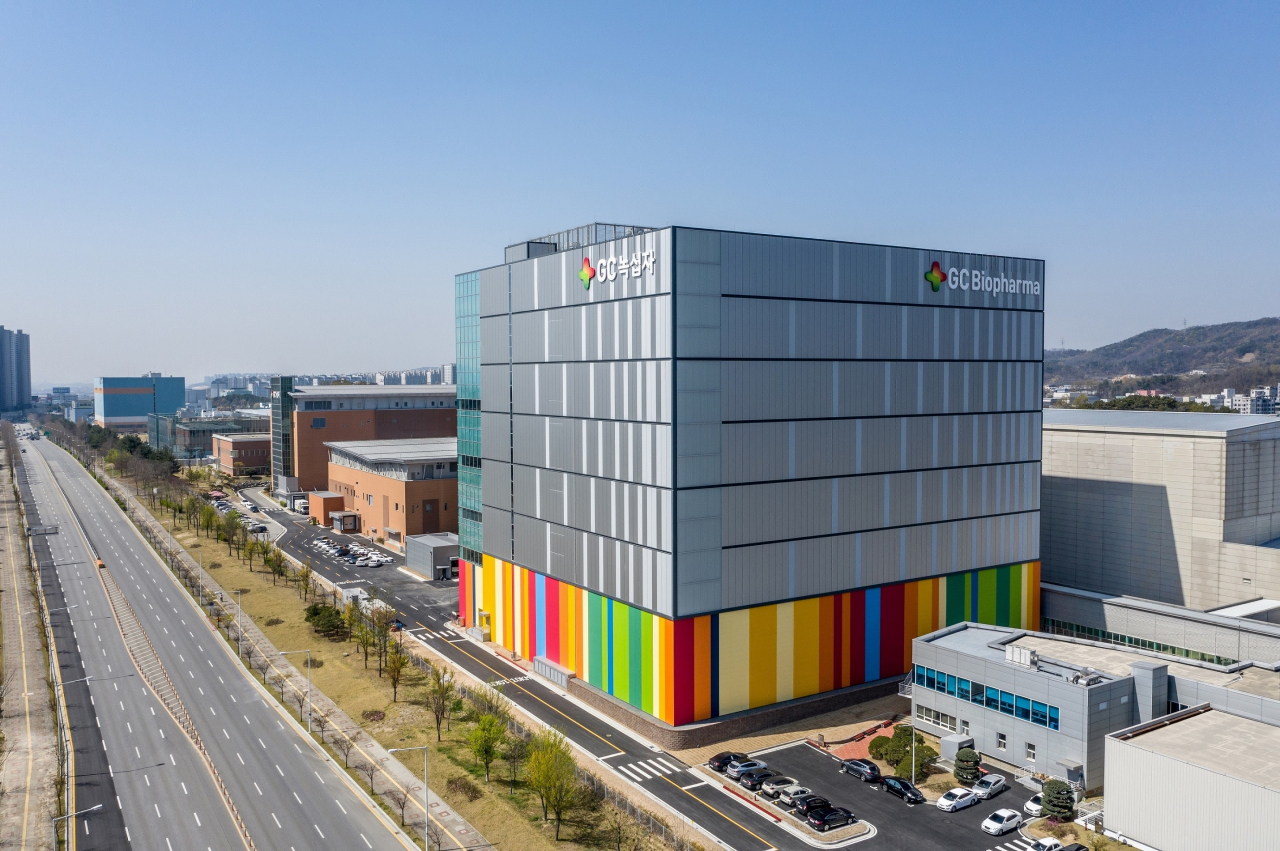How GC Biopharma has become only firm to export blood product plants
Countries in Asia and the Middle East show greater interest in localizing blood product factories after COVID-19 pandemic
By Shim Woo-hyunPublished : Dec. 18, 2023 - 16:23

South Korea’s leading plasma protein and vaccine manufacturer GC Biopharma is the world’s only company that exports plasma fractionation plants to isolate and produce critical blood products.
While global pharmaceutical giants operate their own plants to enter new markets, the Korean firm not only builds new facilities but also shares its operational know-how with countries that are heavily reliant on imports when it comes to plasma-derived blood products.
In 2013, GC Biopharma signed a $68.5 million contract with the Thai Red Cross for its first export of a plasma fractionation plant. Since then, it has inked deals with several countries such as China and Canada.
In 2020, the company also sold its Canadian plant to Spain’s Grifols, one of the top producers of plasma-derived medicines, in a $460 million deal.
“GC Biopharma, a relative latecomer in the blood products market, was able to find a new business opportunity as it sought global expansion,” Lee Woo-jin, global business head of GC Biopharma, told The Korea Herald.
Earlier this month, Indonesia also started construction of its first plasma fractionation plant in partnership with the Korean firm. The new plant, located on 40,000 square meters of land within an industrial complex 35 kilometers east of Jakarta, is set to become operational by 2027 with an annual production capacity of 400,000 liters.
Much of the technologies relating to the construction and operation of plasma fractionation facilities are based on GC Biopharma’s decadeslong experience in the field.
The company completed Korea’s first plasma fractionation facility – the sixth globally – back in 1971. GC China, its Chinese unit, also started operating its own blood products plant in China in 1996.
The company expects to clinch more deals in the future as more countries have experienced unprecedented health care challenges during the COVID-19 pandemic, especially for essential medicines, including blood products.
“After the COVID-19 pandemic, many countries, particularly those in Southeast Asia and the Middle East, have become increasingly interested in localizing plants for blood products. GC Biopharma has also been getting diverse inquiries recently,” Lee said. “We will continue to search for countries with potential needs.”
Lee stressed that clinching a plant construction deal itself is a profitable business, but, more importantly, it helps the company build a positive relationship with a foreign government, which is crucial when it enters a new market or gets approval for a new drug.
Blood products make up more than 35 percent of GC Biopharma’s total sales. On Monday, the company said its immunoglobulin blood product, Alyglo, received an approval from the US Food and Drug Administration for its US debut possibly in the second half of next year.
-
Articles by Shim Woo-hyun





![[Music in drama] Rekindle a love that slipped through your fingers](http://res.heraldm.com/phpwas/restmb_idxmake.php?idx=644&simg=/content/image/2024/05/01/20240501050484_0.jpg&u=20240501151646)



![[New faces of Assembly] Architect behind ‘audacious initiative’ believes in denuclearized North Korea](http://res.heraldm.com/phpwas/restmb_idxmake.php?idx=644&simg=/content/image/2024/05/01/20240501050627_0.jpg&u=20240502093000)









![[Today’s K-pop] Stray Kids go gold in US with ‘Maniac’](http://res.heraldm.com/phpwas/restmb_idxmake.php?idx=642&simg=/content/image/2024/05/02/20240502050771_0.jpg&u=)